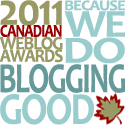This week is Financial Planning Week in Canada and National Save for Retirement Week in the United States. Add those to the fact that October is Investor Education Month in Canada, and is there really any better time to talk about retirement planning?
In a recent survey, 65% of Nova Scotians (similarly 66% of Canadians) agreed that it was important to have a financial plan and 90% of Nova Scotians (85% Canadians) agreed it was important to build up your own personal savings, whether through a pension plan or otherwise.
Yet, 75% of Nova Scotians do not have a financial plan, and 59% expressed concern that they will not have enough money to meet their goals.
How do we move from knowing what to do, to getting it done? There is no easy answer. A good place to start though, is to set goals and figure out what it is you need to accomplish.
Saving for retirement can seem daunting. Often, the figures we have in mind are so huge, we fear we will never achieve them. It is important to sit down and calculate a realistic estimate of your retirement needs. You may do this on your own, or with a financial adviser. There are three simple ways to do this:
1. Use a simple guideline based on what you make now
One simple guideline is that after you retire, you will need between 60% and 80% of what you earned in the years right before retirement. The closer you are to the 80% mark when you retire, the more comfortable you will likely be after you retire.
2. Look at what the research tells you
Statistics Canada has looked at the different lifestyles Canadians have after they retire and how much it costs to live these lifestyles. The numbers are fascinating, and you can use them to estimate your own income range. To learn more, read What will life be like after I retire? from the Investor Education Fund.
3. Make a detailed budget
Here you write down exactly what you think you will spend each month on housing, food, entertainment, health, gifts, and other expenses, and then add it all up. The further you are from retirement, the more difficult it may be to judge your expenses, so it may be easier to work with steps 1 or 2.
In upcoming posts, we will consider the sources of retirement income we may already have, and look at how to translate the yearly salary you want in retirement into the amount of savings you need to accumulate.
Related posts:
- Retiring in Canada: New national pension plan proposed Provincial finance ministers have agreed to look into a new...
- How much do I need to contribute to my retirement savings? Well, between some pre-planned travel and conferences, and an unplanned...
- Your sources of retirement income Last week we talked about how much money you will...
- Starting the year off right – with a realistic budget Monday we talked about various financial resolutions you might make,...
- Savings – the first step to investing well There’s a great article in today’s Globe and Mail entitled...
Share & Bookmark This Story!
 Bookmark on Delicious
Bookmark on Delicious  StumbleUpon
StumbleUpon  Google Bookmarks
Google Bookmarks Tip'd
Tip'd 



{ 0 comments… add one now }